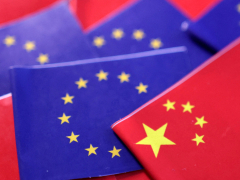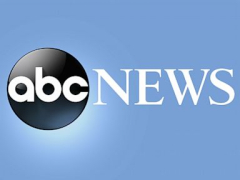Top European Union officials Ursula von der Leyen and Antonio Costa are due to meet with Chinese President Xi Jinping in Beijing as the EU and China mark 50 years of diplomatic relations amid simmering tensions.
Von der Leyen and Costa, who respectively head up the European Commission and the European Council, will arrive in Beijing on Thursday for the 25th EU-China summit. But in the lead-up to the one-day summit, it was unclear whether von der Leyen and Costa would actually meet with Xi due to the ongoing political tensions between Brussels and Beijing.
Their meeting was originally planned as a two-day summit in Brussels, but Xi declined the invitation to attend, according to a report by The Financial Times, citing people familiar with the matter.
It was only this week that China’s Ministry of Foreign Affairs formally confirmed that a meeting between Xi, von der Leyen, Costa and Chinese Premier Li Qiang would go ahead.
Despite the back and forth over scheduling, Beijing has billed the event as a chance to reset relations with Europe, said Marina Rudyak, an assistant professor at the Institute of Chinese Studies at Germany’s Heidelberg University.
“What we see a lot from the Chinese side, and this is quite constant, is ‘let’s normalise the relations, let’s focus on pragmatic cooperation, let’s focus on where we agree and accommodate where we disagree’,” Rudyak told Al Jazeera.
In advance of the summit, Chinese state media published a positive analysis of EU-China relations – reports that are often seen as an indirect way for Chinese officials to comment on issues of the day.
Foreign Ministry spokesperson Guo Jiakun similarly described the China-EU relationship in glowing terms on Tuesday, as “one of the most influential bilateral relationships in the world”, during a meeting with reporters.
“The China-EU relationship is now at a critical juncture of building on past achievements and opening up a new chapter,” Guo said.
“The relationship faces both new opportunities and new challenges,” Guo added, noting an “increasingly turbulent international landscape, with rising unilateralism and protectionism”.
Tensions over Xinjiang, Ukraine
Despite Beijing’s offer of an olive branch to Brussels, expectations are low among Western observers that the EU and China will see any major breakthroughs, due to several ongoing and protracted disputes.
The EU and China have frequently sparred over issues such as human rights and political oppression in locations including Hong Kong, Tibet and Xinjiang, but the relationship took a turn in 2021 when the EU sanctioned Chinese officials for their oppression of ethnic minority Uighur Muslims.
China responded with sanctions of its own on 10 Europeans, including members of the European Parliament, and several think tanks.
Beijing lifted sanctions on the European MEPs in April in a gesture of goodwill before the EU-China summit, but other political fractures remain over China’s ongoing and close relationship with Russia since Moscow launched its full-scale invasion of Ukraine in 2022.
Beijing is also widely seen as keeping Russia afloat economically amid ongoing international sanctions, particularly by buying Russian energy exports.





